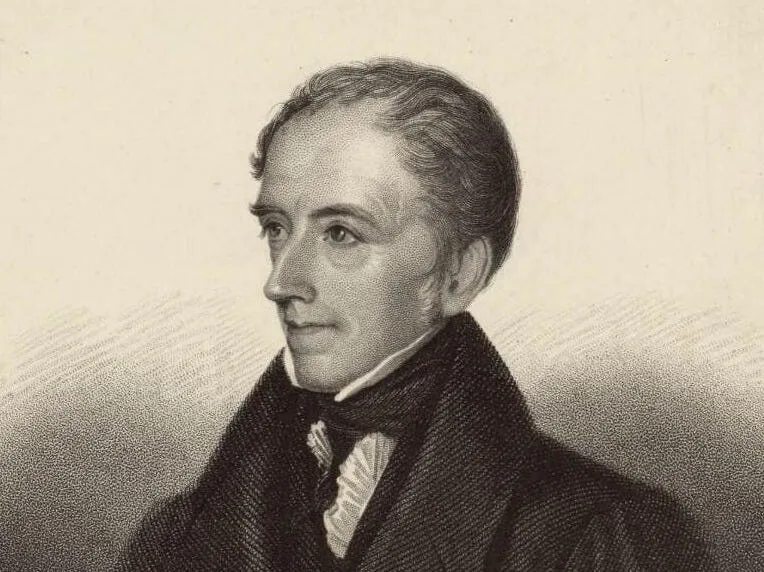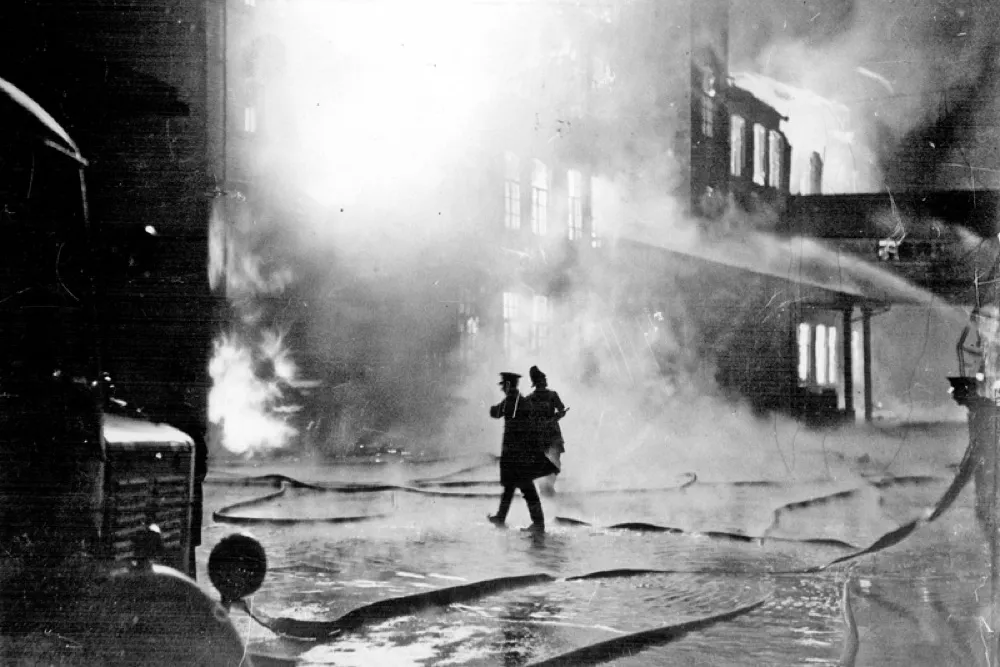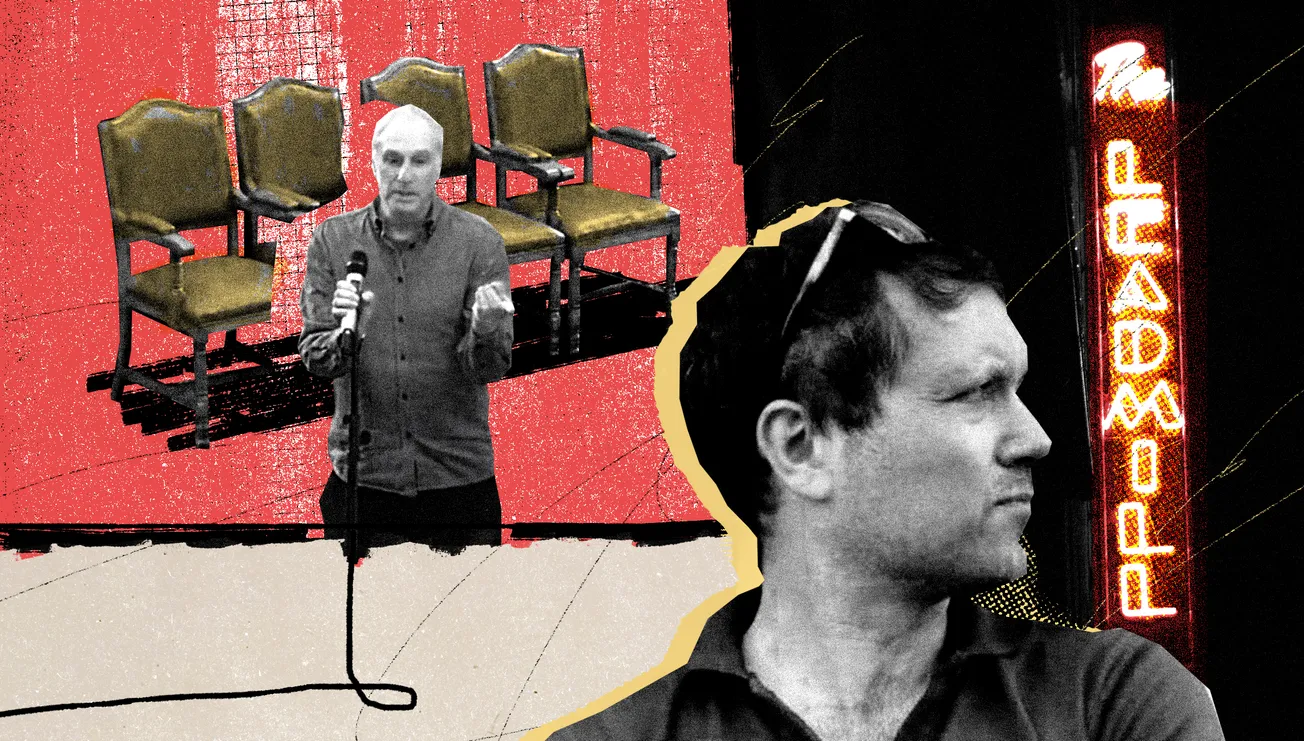As he looked death in the face, James Montgomery was writing a hymn. The poet, publisher and radical had been drawn to poetry and hymn-writing since he was a child. In fact, according to his memoirs, he was so intensely focused on poetry there was little room left to focus on much else.
When it came to his broader education, he didn’t excel. The Moravian settlement he was schooled in — in Fulneck, a village in the town of Pudsey, Leeds — didn’t allow secular studies. Nevertheless, Montgomery found ways to borrow and read reels of poetry, including Burns’ “Lines to A Mountain Daisy.” He was inspired to write his own. Before he was 10, he wrote little books of poetry, and as a teenager, composed longer ones.
Montgomery was born in Irvine, Scotland, on 4th November 1771 to parents who were Moravian missionaries. The family moved to a settlement in County Antrim in Northern Ireland when Montgomery was five. It was around this time that his parents heeded the call to a mission in the Caribbean. Neither would return. First to die was Mary, his mother, in Tobago — then his father, John, one year later in Barbados.
By the time his parents were dead, Montgomery would have been studying at Fulneck, bristling against the confines of his education. He left school in 1787, at 16, and drifted between jobs as an assistant baker and a storekeeper, but was disenchanted.

When he was 19, he went to London to peddle his prose and verse. There were no buyers. Despite this inconvenient fact, he was determined to make his living in literature one way or another. So, in 1792, when he saw an advert for a bookkeeper at a newspaper in Sheffield, The Register, he applied.
The late 18th century was a fraught time for British newspapers. Like social media companies today, their effects on the population weren’t fully understood and the parameters they could operate in were unsettled. There were attempts at censorship, often via libel prosecutions. Even as late as 1810, the political essayist William Cobbett would be fined and imprisoned for nothing more controversial than essentially writing an op-ed — an article in which he denounced flogging in the army.
Perhaps unsurprisingly, this fostered anti-establishment sentiment amongst journalists and publishers. The political theorist Thomas Paine was probably the most famous of these dissenters, and before he left for America — where he would make substantial contributions to the country’s revolution, both in terms of writing and funding — he briefly met an apprentice printer named Joseph Gales. Gales was so inspired by Paine that he started his own radical newspaper, The Sheffield Register.

When Montgomery joined the newspaper, Gales, as editor, took him under his wing. However, as the latter’s politics became more prominent in the editorial pages, so too did pressure from the censors. Eventually, Gales had to flee the country after narrowly avoiding imprisonment for his writing, and the newspaper was handed to Montgomery, who changed the name to The Iris and vowed to be more impartial.
This didn’t really happen. In the 62 years he lived in Sheffield, Montgomery went from being a seditious, radical newspaperman — at one point selling signed copies of his account of his trial, essentially monetising his own indictment — to a venerable, patriotic philanthropist. But there was one constant: during all that time, he remained a poet. Like Gales before him, he used the newspaper as a prism through which he could project his own politics, and was imprisoned twice for the privilege. He wrote poems which rallied against the political establishment, against slavery, and child labour.
Montgomery used the newspaper to document his own life and as a vehicle for publishing the poetry no one in London would. The Iris had a dedicated poetry section, which academics call “poetry corner” in their studies of 18th century print culture. Never one to do anything by halves, Montgomery opted for a grander title: the Repository of Genius.

On Christmas Eve of 1816, Montgomery published one of his own hymns — “Angels from the Realms of Glory” — in the Repository of Genius. This wasn’t a one-off: throughout his life, Montgomery wrote some 400 hymns and 100 of these are still sung today.
If you’re a church-goer, even just on Christmas, it seems likely you’ll have sung “Angels from the Realms of Glory.” The fluting melody drawn out in the refrain “Come and worship, Worship Christ, the newborn King” is as much of a joy to belt out as it is to listen to. But the real beauty of the carol is found in the lyrics, which dovetail neatly between the divine (angels flying above the earth) and the earthly (shepherds watching over their flocks at night). There’s an expansiveness to the carol which feels generous — it encompasses both saints bending before the altar and sinners breaking their chains.
At the time the hymn was published, Christmas would have been a far more religious affair than it is today. In the early 19th century, Sheffield was still deeply impoverished, so much so that many cutlery workers lamented having to take a day off and lose half a crown. People would usually take the opportunity to get a change of air, to break out from the industrial smog and take a walk in the countryside, despite what was likely biting cold.

The festivities we know today didn’t yet exist. It wouldn’t be until the 1830s that Christmas began to capture people’s imaginations, when the Victorians transformed Christmas into an occasion centred around family. And, it wouldn’t be until 1848 that the custom of displaying a Christmas tree in the home was popularised by Prince Albert, the Queen’s consort, when an engraving published that year showed the Queen, the Prince and their children decorating a tree together.
In fact, in the 1820s — when Montgomery would republish “Angels from the Realms of Glory” in his hymnal, The Christian Psalmist — The Sheffield Independent lamented that the custom of singing carols in the streets was “fast falling into oblivion.”
For Sheffield residents in the early 19th century, Christmas was an opportunity for a break and a trip to church on very modest means. Indeed, they would often rely on the benevolence of local people, like one Mr. Wiley, who annually distributed 84 blankets and pork pies to poor older women.
Montgomery, too, became one of these wealthier benefactors later in his life. He also returned to faith, requesting to be readmitted into the Moravian congregation at Fulneck when he was 43. He sold The Iris to John Blackwell in 1825, and from then on occupied himself with philanthropic and religious pursuits.

He was a dogged activist, against slavery and child labour, and played a large role in the establishment of the Sheffield Sunday School Union. The union aimed to educate working children on Sundays and lobbied for child labour laws to keep them from working as chimney sweeps.
According to his biographers, Holland and Everett, Montgomery’s final hymn was requested by a Reverend W. Mercer, who needed a hymn to “suit a particular air.” The biographers neglected to mention what specific hymn it was. “In April,” writes Holland, “he composed two hymns: one of them – the last production, as it proved, of his fertile pen, being dated only the day before he died.”
Later in his life, Montgomery was asked if he thought any of his poems, his repository of genius, would survive. His answer was prescient: "None, sir. Nothing except perhaps a few of my hymns."

Comments
Sign in or become a Sheffield Tribune member to leave comments. To add your photo, click here to create a profile on Gravatar.







